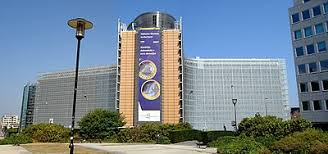It is becoming increasingly apparent that many in the EU do not have much concern about whether its huge efforts to regulate Big Tech will infringe on the free speech rights of its citizens.
I recently attended a Town Hall entitled “From Bytes to Rights” in Brussels which discussed the European Declaration on Digital Rights and Principles. There were several esteemed persons on the panel, including Renate Nikolay, a Deputy Director General at DG CNCT, the EU Commission department responsible for developing and implementing EU digital policy. Also on the panel was Bernd Lange, the MEP who was the Rapporteur for the Declaration.
As the panel made clear, the Declaration, issued in December of 2022 is not binding, but is intended as a guideline for European policy on digital matters, including subsequent legislation like the Digital Services Act (DSA), Digital Markets Act (DMA), and the AI Act.
Even a quick reading of the Declaration reveals a glaring omission. It lists six principles that are supposed to guide the EU in passing, implementing, and enforcing legislation. While the first of these principles entitled “People at the Centre” states that technologies should generally “protect people’s rights,” there is no specific mention whatsoever of freedom of expression, a right that is supposed to be enshrined in the EU Charter of Fundamental Rights.
The third principle of the Declaration – “Freedom of Choice” – states that “People should be safe from illegal and harmful content…” But what is harmful content? And what will be the effect on freedom of expression in determining which content deemed harmful EU citizens are not entitled to see?
The panel at the Town Hall seemed to give short-shrift to any notion that the EU's recent legislation could adversely affect freedom of expression, and instead focused on combating what they view as abuses by large technology companies, mostly American with a few Chinese players.
Berd Lange’s comments gave a hint of his underlying philosophy on the subject. He started his presentation stating that, when he was young, he held the wrong belief that the “wild west” involved cowboys and “treks,” but he’s come to learn that it really involves six big Silicon Valley companies who have been damaging to society due to their focus on the “idolatry of freedom of the digital sphere.”
There is a growing consensus across political ideologies in both North America and Europe that there needs to be more regulation of Big Tech. However, there are at least two issues that undermine the righteousness of the EU’s crusade to society from the harmful effects of the digital age.
First, as illustrated by Mr. Lange’s comments, there appears to be a growing hostility to American technology dominance that has little to do with lofty goals of protecting society from adverse consequences of technology like social media.
Second, there appears to be a glossing over of the adverse effect that the EU’s regulation of Big Tech will have on the freedom of expression of its citizens, and perhaps those outside the EU.
In fact, throughout the Town Hall, there was no detailed discussion of how the EU intends to ensure that its regulations such as the DSA will ensure free speech. The overall impression that I got was that battling disinformation and hate speech was more important than preserving freedom of expression. Although there were a few comments made by Ms. Nikolay that the Commission is not interested in censoring users’ freedom of expression on the Internet, the attitude seemed to be that everyone should just trust the Commission to make the right judgments about what qualifies as disinformation and hate speech that needs to be censored by platforms, as opposed to rigorous and controversial content that should be protected.
I attempted unsuccessfully to submit a question about this to the panel, asking for comment on whether the failure of the DSA to define “disinformation,” together with potentially severe penalties if platforms don’t sufficiently police disinformation, will pressure platforms to over-filter through their content moderation protocols. I also have been searching the web for a good answer to this question from the Commission but have not yet found one.
This raises the prospect that EU law on freedom of expression will diverge more widely from US law on this subject. Recent and pending US court cases leave some doubt as to whether any meaningful government-imposed requirements for Internet platforms to police disinformation can pass scrutiny under the US Constitution.
It also will be interesting to see whether the European public will tolerate the EU’s apparent willingness to erode freedom of expression when regulations like the DSA take full effect. If platforms start to widely over-filter and restrict content posted by everyday users will that lead to hostility toward the regulation.
Another troubling aspect of the Town Hall were many of the comments that reflected hostility toward American technology companies casting them as villains in Mr. Lange’s wild west analogy. Several panel members expressed that European companies would do better at addressing the adverse effects of the digital age. One commentator even went so far as to say he was disappointed with the EU’s recent purchase of Microsoft products. He felt that the contract should have gone to a European company, although he did not explain which European company might provide products that are comparable or superior to Microsoft’s.
This illustrates that, looming above a lot of the recent EU legislation targeting Big Tech is the question of the extent to which the EU’s motives are protectionist as opposed to an earnest attempt to protect EU consumers.

Member discussion: